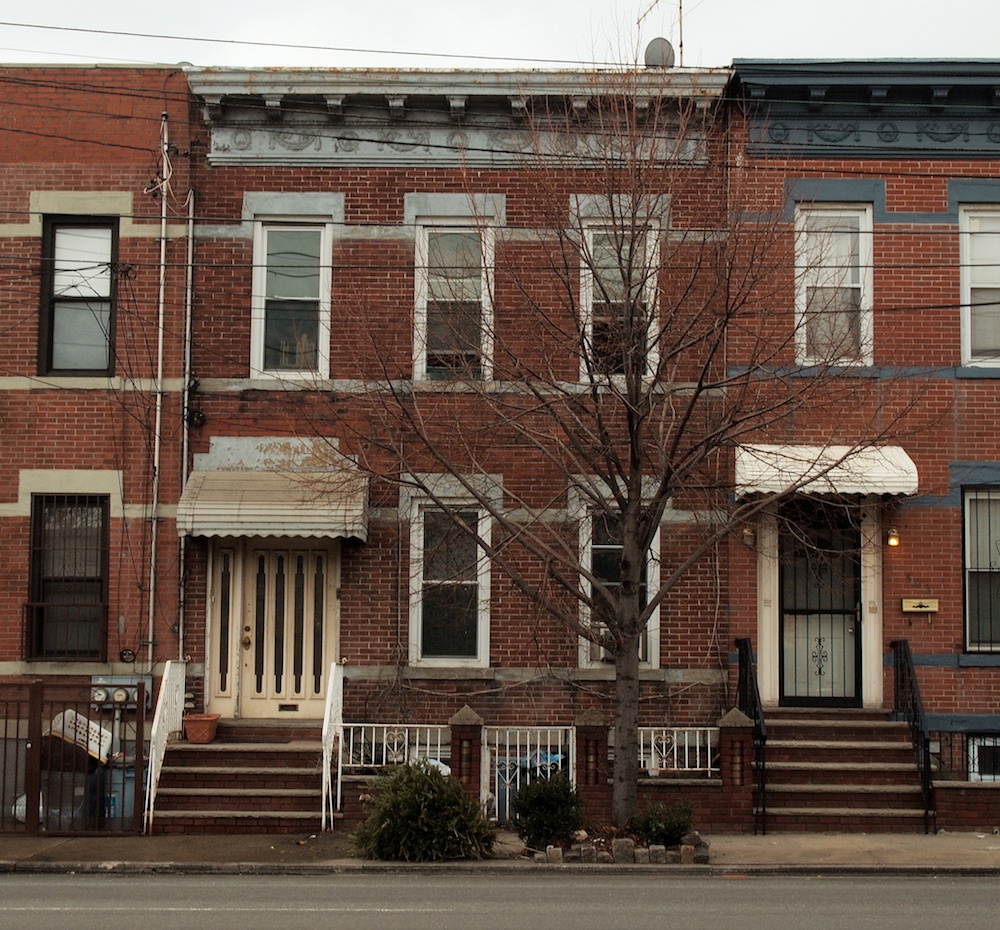Landlord Died? Don't Do What This Couple Did
If your landlady dies without a clear heir to the building, don’t do what this couple did: just stop paying rent. A Greenpoint resident we’ll call Jay (it’s not his real name) and his wife were paying $1,700 a month for the spacious top floor of a three-unit building on Leonard Street when their Polish landlady…

If your landlady dies without a clear heir to the building, don’t do what this couple did: just stop paying rent.
A Greenpoint resident we’ll call Jay (it’s not his real name) and his wife were paying $1,700 a month for the spacious top floor of a three-unit building on Leonard Street when their Polish landlady — who occupied the parlor-level unit — unexpectedly passed away. A man claiming to be the landlady’s cousin, perhaps a relative of her deceased husband, soon appeared asking for the rent.
“We said no,” Jay recently told Brownstoner. “It didn’t feel right to pay someone without knowing if they were the executor of the estate.” The couple soon learned that the landlady’s estate was being disputed in court.
The landlady’s cousin appeared again to tell them to put their rent in an escrow account. “But we didn’t,” Jay admitted. “Because, well, it’s New York and whatever extra money you have gets spent.”
As the legal system worked, Jay and his wife became the de facto caretakers of their dilapidated apartment building — fixing minor building problems, shoveling snow, and paying the real estate taxes, as well as the gas and heating bills.
For a time, things were good. “The apartment was huge,” Jay recalled. “It was a railroad apartment on steroids.” The 1,200-square-foot unit had windows in every room and enough space for a dining room.
But then things fell apart. Literally. First the refrigerator broke, then the hot water was shut off for several weeks, and Jay discovered shoddy electrical wiring that was certainly not up to code. As the problems mounted and the stress of their situation increased, the rent-free digs felt like less and less of a good deal.
Jay and his wife decided to move around the time the legal case was finally resolved — about a year after their landlady died. Ownership of the property was granted to the man who’d first approached them about the rent. And he wanted them to pay up.
The landlady’s relative hit them with a summons requiring Jay to pay the full amount of rent for the 12 months since her death, not discounting the bills. It was more than $20,000. And they had 10 days to pay.
“Those last few months were super stressful,” Jay remembered. He and his wife were moving into a Park Slope apartment (a third the size of their Greenpoint place, and more expensive) at the same time they were trying to resolve the rent issue.
“Luckily, my sister is a lawyer,” Jay said.
She filed a petition on Jay’s behalf and walked him through the legal process. After a drawn out back-and-forth between the cousin, the cousin’s lawyer, Jay, and his sister, they reached a settlement.
Jay’s advice to those who might find themselves in a similar situation? “Don’t pay anyone who can’t legally collect the rent. And if there isn’t anyone, put it in escrow.”
Photo by Christopher Bride for PropertyShark









Wait a minute, the renter didn’t seek legal advice from his sister until after the fact? Huh? Can you spell ‘d-u-m-b-a-s-s’?
Just a guess; was this by any chance 586 Leonard?
Advice to landlords: NEVER settle for just a credit check, no matter what a broker tells you. And of course references can be faked. I learned the hard way that an applicant can have good credit simply because they haven’t had a chance to bounce a check for years….for example, if they just finished doing time for assault and battery on their prior landlord. So you also run a criminal check. But wait….a deadbeat can still have good credit and NO criminal record, if the felony was their first offense and they plea bargained it down to a misdemeanor and got the criminal record sealed as part of the plea. Soooo….you ALWAYS do three checks: Credit, criminal, and L/T litigation. That last one turns up any litigation the applicant has been involved in in L/T court. There are a number of websites (such as amerusa.net) that run these checks, with a 24 hour response time; the applicant has to consent and give you their SS#, and you get them to pay the costs of the checks. And if a tenant won’t consent to the checks, that’s fine; I just move on to the next applicant. Haven’t had a problem with a tenant since I started insisting on all three checks (credit, criminal, and L/T litigation) before signing a lease. Unfortunately for the building owners in this case, there’s no way to do a moron check. Also, what is the news value of the fact that the deceased landlady was Polish?
Jay’s advice to those who might find themselves in a similar situation? “Don’t pay anyone who can’t legally collect the rent. And if there isn’t anyone, put it in escrow.”
Dear Jay,
Duh. Grow up.
My advice was not intended to help the Greenpoint landlord; and obviously it would not have done so. Whether or not they intend to “screw over the Park Slope landlord,” had said landlord run the three checks, I suspect that he/she would most likely not have rented to them. It’s not so much a question of their intentions toward the new landlord as their poor judgment – which could manifest itself in other ways in another residence.
Per the article, “Jay and his wife decided to move around the time the legal case was finally resolved.” In other words, the legal process was happening before they actually “decided to move” – and had been going on for some time. So in the event that their current landlord had run a landlord/tenant litigation check, it would presumably have pulled up the “legal process” in which they were engaged with the prior landlords in Greenpoint, prior to their decision to move to Park Slope..
You don’t need to open someone’s mail in order to pay the tax bill. The NYC tax website has everything online. You just type in the block and lot and you get an archive of every tax bill going back years. You see how much is owed now, and you see the tax bill exactly as it would look in the mail. You also have the option to pay it right then and there with a bank account.
I totally agree- obviously you shouldn’t be opening other people’s mail! There’s a lot of idiocy in this story. I understand not paying some random person who shows up at your door and demands rent, but spending the money is about the dumbest thing you can possibly do. Also good luck to them if they ever need to rent again, this has likely put them on the dreaded “tenant blacklist”
Your name doesn’t need to be on a bill to pay it. Bill collectors just want their money. If you gave me your address right now, I could go online, find your tax bill on the city’s site, and pay it.
My concern is why would they pay the taxes but not the rent? This whole story sounds foolish.